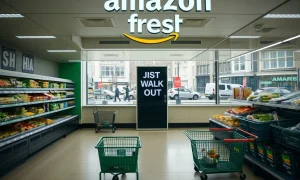Silicon Valley’s biggest players confront an unprecedented H-1B visa crisis that threatens their global talent acquisition strategies. Major technology firms report significant delays and denials in visa processing, creating operational challenges across development teams and project timelines. This situation impacts companies relying on specialized international expertise to maintain competitive advantage.
Understanding the H-1B Visa Process Challenges
The H-1B visa program faces mounting scrutiny and procedural hurdles. Companies now encounter extended processing times that disrupt hiring cycles. Consequently, tech giants must reassess their recruitment approaches and contingency planning.
Key Issues Affecting Tech Companies
- Processing delays extending beyond six months
- Increased request for evidence (RFE) rates
- Higher denial rates for specialized positions
- Uncertainty in project staffing and timelines
Impact on Business Operations and Innovation
The H-1B visa situation directly affects product development and innovation cycles. Tech companies report project delays due to staffing gaps. Moreover, the uncertainty creates challenges in long-term planning and resource allocation.
Operational Consequences Include:
- Delayed product launches and updates
- Increased operational costs for contingency measures
- Potential competitive disadvantage in global markets
- Strained relationships with international partners
Industry Response and Adaptation Strategies
Technology firms implement various strategies to mitigate H-1B visa challenges. Many companies explore alternative hiring approaches while advocating for policy reforms. Additionally, some organizations establish remote work arrangements for affected employees.
Current Adaptation Measures:
- Increased domestic recruitment efforts
- Expansion of international office locations
- Enhanced legal and immigration support services
- Diversification of talent sourcing strategies
Future Outlook and Potential Solutions
The H-1B visa landscape continues evolving as stakeholders seek balanced solutions. Industry leaders collaborate with policymakers to address systemic issues. Meanwhile, companies develop more resilient workforce planning frameworks.
Frequently Asked Questions
What is causing the current H-1B visa delays?
Increased scrutiny, higher application volumes, and policy changes contribute to processing delays. Administrative processing times have extended significantly across all visa categories.
How are tech companies adapting to these challenges?
Companies implement multiple strategies including domestic hiring pushes, international office expansion, and enhanced immigration support services for employees.
What positions are most affected by H-1B visa issues?
Specialized technical roles including software engineers, data scientists, and AI researchers experience the most significant impact due to specific skill requirements.
Are there alternatives to the H-1B visa for tech companies?
Companies explore options including L-1 visas, O-1 visas, and TN visas where applicable, though each has specific eligibility requirements and limitations.
How long do H-1B visa processing delays typically last?
Current processing times range from 6-9 months for standard applications, with premium processing taking approximately 4-6 weeks when available.
What policy changes could improve the H-1B visa situation?
Potential improvements include streamlined processing, clearer eligibility guidelines, and increased visa caps for high-demand technical fields.








